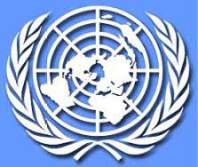UN: Cyprus peace talks tackle "thorny" issues
 Athens/Nicosia - Leaders seeking a solution to reunify the divided Mediterranean island of Cyprus tackled "thorny" issues on Tuesday in the latest round of UN-sponsored peace talks, officials said.
Athens/Nicosia - Leaders seeking a solution to reunify the divided Mediterranean island of Cyprus tackled "thorny" issues on Tuesday in the latest round of UN-sponsored peace talks, officials said.
"The talks took place in a positive climate but focused on a number of thorny issues," said Alexander Downer, a former Australian foreign minister and UN special envoy to the talks.
He said the 13th meeting between Greek Cypriot President Dimitris Christofias and his Turkish Cypriot counterpart Mehmet Ali Talat would take place on December 22.
Initial optimism from earlier this year that one of the world's most unmanageable conflicts might finally be solved has waned as peace talks failed to produce a breakthrough in 2008.
The only tangible outcome following the weekly meetings between Christofias and Talat has been the realization that a long road still lies ahead of any breakthrough, despite the enthusiasm that greeted a new round of peace talks in September following a four-year stalemate.
The eastern Mediterranean island has been split since 1974 ever since Turkey invaded the northern third of Cyprus in response to a short-live coup initiated by the military junta then ruling Greece.
Ankara still maintains more than 35,000 troops in the northern part of the island and refuses to normalize ties with the internationally recognized Republic of Cyprus, an EU member.
Since then, countless efforts by the United Nations to find a solution to the decades-old problem have failed, most recently when former president Tassos Papadopoulos led the Greek-Cypriot rejection of UN reunification plan in a 2004 referendum.
Turkish Cypriots had overwhelmingly voted in favor.
Following the election of Christofias in February, in which he ousted hardliner Papadopoulos, immediate steps were taken by both sides to relaunch full-fledged peace talks.
Although a settlement has been thwarted for decades, mediators are more optimistic that Christofias and Talat are the best individuals in place to broker a deal, since they are both moderates.
On the agenda are issues ranging from territory and property disputes from more than 250,000 people who have lost their homes, the return of refugees, security guarantees and future governance of the island.
Any deal will need to be approved by Cypriots in separate, simultaneous referendums.
After more than a dozen meetings, the two leaders have not progressed beyond the issue of governance and power sharing under a future federation.
The two sides have agreed in principle to a settlement based on a federation, but the Turkish Cypriots want a loose federation, while the Greek Cypriots want a stronger central government and more limited regional powers which will prevent the island falling back into partition.
The ongoing conflict in Cyprus also threatens Turkey's aspirations of joining the European Union. Ankara started EU entry talks in 2005, but the Cyprus problem has proved one of the main stumbling blocks in negotiations.
Tensions recently erupted when Cyprus complained to the United Nations that a Turkish warship was harassing oil and gas exploration vessels in its waters. Ankara maintains that the ships were encroaching on its continental shelf. (dpa)